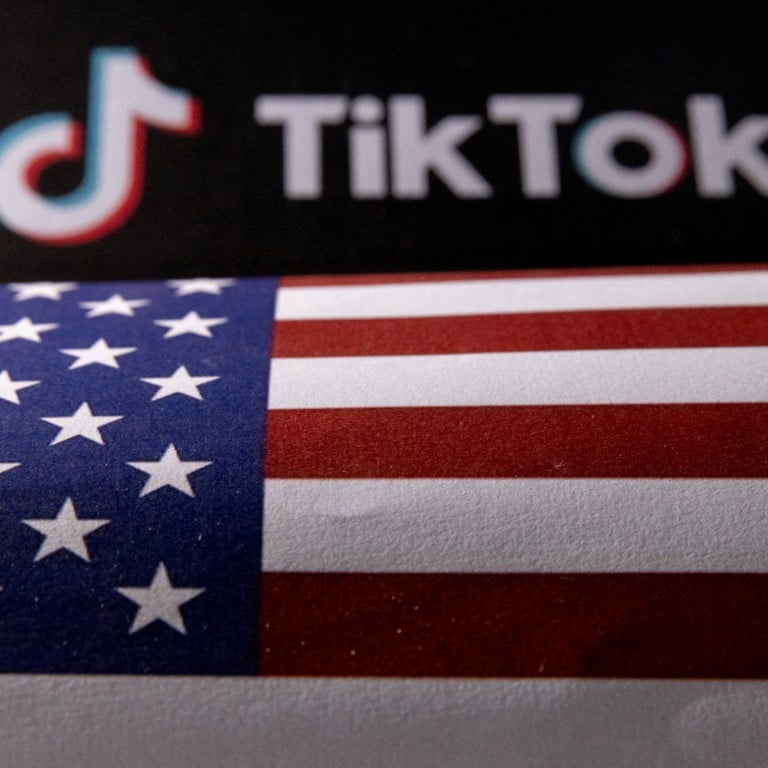
TikTok crackdown bill unanimously approved by US House panel
- The legislation gives China’s ByteDance six months to divest TikTok or the short video app would face a US ban
- The 50-0 vote indicates significant momentum for congressional action against TikTok, which has about 170 million US users
A committee in the US House of Representatives advanced two bipartisan bills on Thursday that would compel ByteDance, the Chinese owner of TikTok, to divest the short video sharing app, and require data brokers to prevent personal data collected on the app from being sold to foreign adversaries.
Both bills, which were introduced Tuesday, passed 50-0 through the House Committee on Energy and Commerce, in the latest challenge facing TikTok and data brokers more broadly.
McMorris Rodgers, of Washington state, said on Thursday that apps like TikTok “are able to target, surveil and manipulate Americans”. She also named the video editing app CapCut and lifestyle app Lemon8 – also owned by ByteDance – as apps that were “spying by design” because of their need to comply with Chinese laws.
Chinese national security laws would require data from the apps to be handed over on request, but ByteDance has said repeatedly that it has never provided TikTok user data to Beijing.
Before the energy and commerce committee vote, it held a classified hearing on Thursday morning with officials from the Federal Bureau of Investigation, Department of Justice and Office of the Director of National Intelligence to discuss the bills.
China to block new US moves forcing ByteDance to divest TikTok, analysts say
Gallagher, a Wisconsin Republican, insisted that his bill was not a ban of TikTok.
“If an entity other than a [Chinese Communist Party]-controlled entity owns TikTok, Americans can still share whatever content they like, no matter how bad the dance moves may be,” he said on Wednesday.
Observers counter that the legislation is effectively a ban of the app since Chinese government rules prevent the export of software, including the algorithm that serves as TikTok’s recommendation engine. That means TikTok’s US operations can be sold, but not the key technology that powers the app.
Asked about Beijing’s export controls, Gallagher said he hoped Americans invested in ByteDance “will deliver the message to their contacts in China, urging them to allow for a sale”.
A bill introduced in the House typically must win committee approval before it reaches the floor for a vote by the full house. After House passage, the same bill must pass the Senate before it can be brought to the president’s desk for signing into law.
House Speaker Mike Johnson spoke in favour of Gallagher’s bill on Thursday. There is not yet a Senate version, but legislative efforts to restrict TikTok are present in both chambers.
A National Security Council spokesperson said this week that the administration has worked with legislators on Gallagher’s bill and that it presents a “welcome step” to address the threat to “Americans’ sensitive data and our broader national security” posed by technology services.
Biden’s campaign joins TikTok with ‘lol hey guys’ to woo younger voters
Jameel Jaffer, executive director of the Knight First Amendment Institute at Columbia University, said that Gallagher’s bill raised “serious First Amendment concerns”, referring to the constitutional doctrine protecting freedom of speech.
“Congress can protect data privacy and security without banning Americans from accessing one of the world’s most popular communications platforms,” he added.
A 2021 report from University of Toronto-based research group Citizen Lab found no “overt data transmission” by TikTok to the Chinese government. Its analysis was “inconclusive” about whether TikTok engaged in political censorship of user posts.
It also found that TikTok collected similar amounts of data as other social media platforms like Facebook.
Both the White House and critics of a TikTok ban have supported a comprehensive privacy law restricting the data that TikTok and other tech platforms collect.
“The government is attempting to strip 170 million Americans of their constitutional right to free expression. This will damage millions of businesses, deny artists an audience, and destroy the livelihoods of countless creators across the country,” the company said after the vote.



